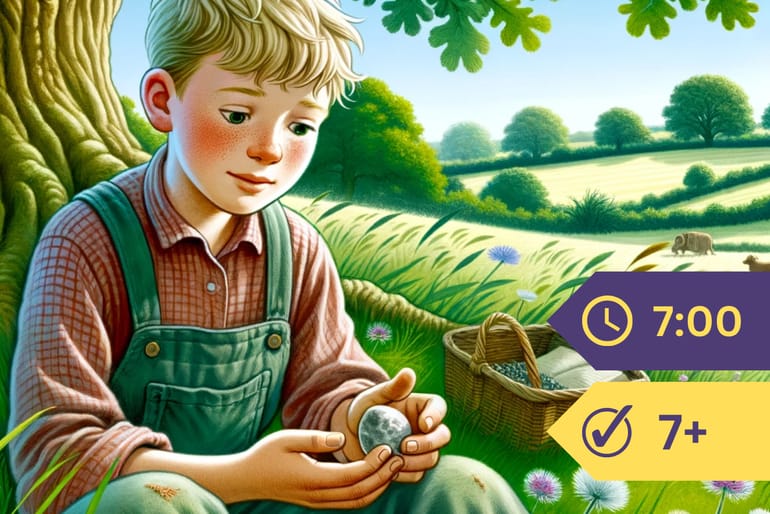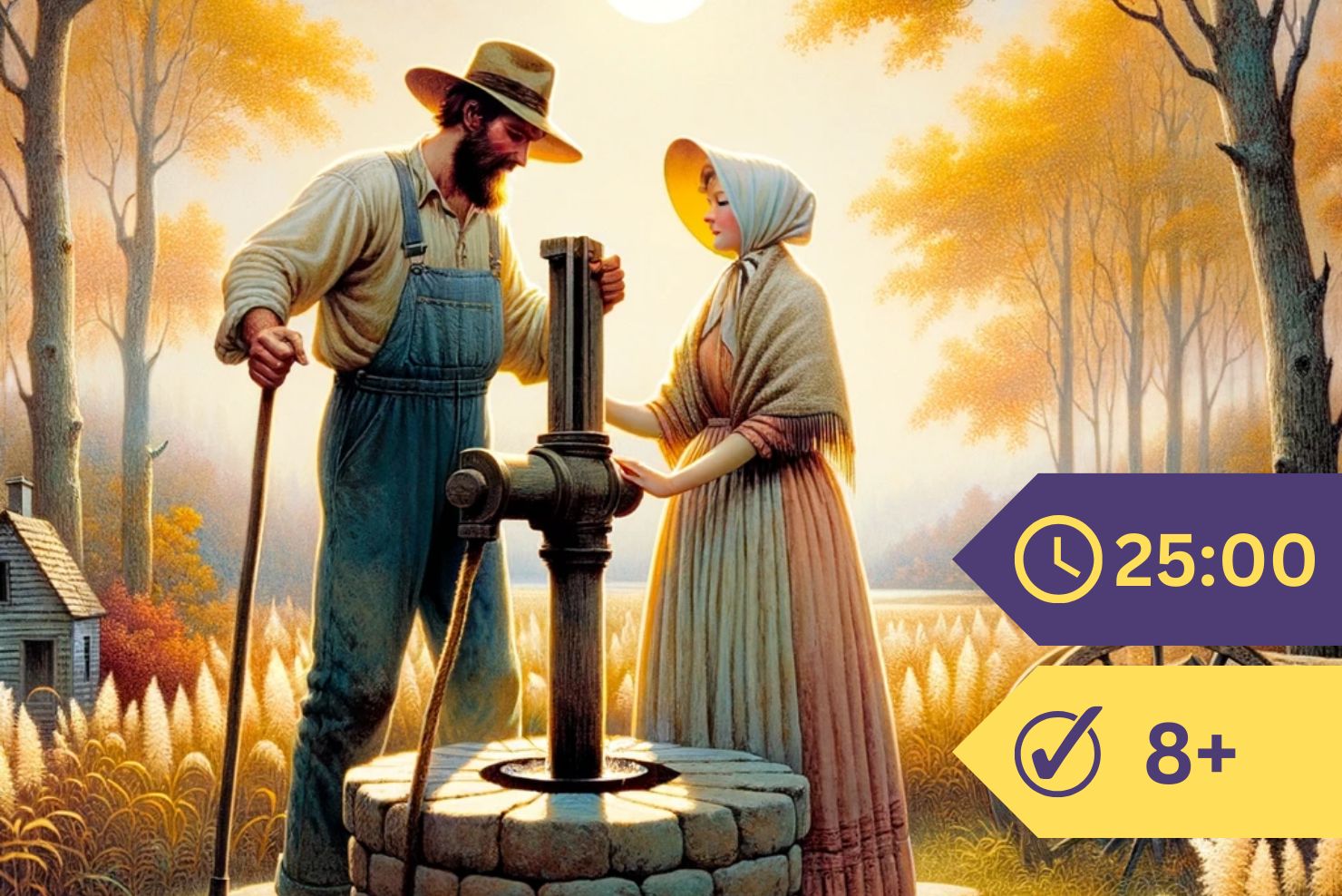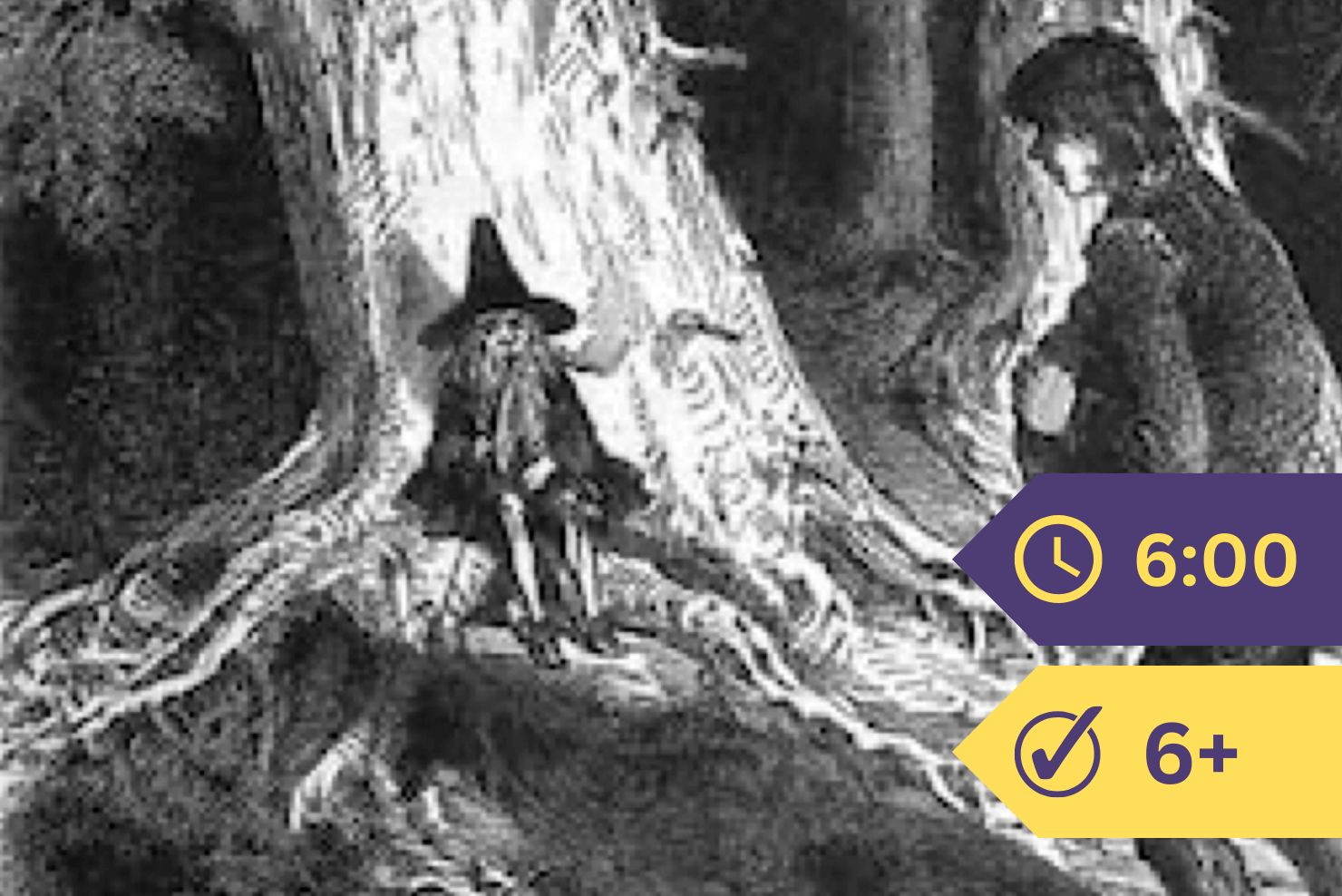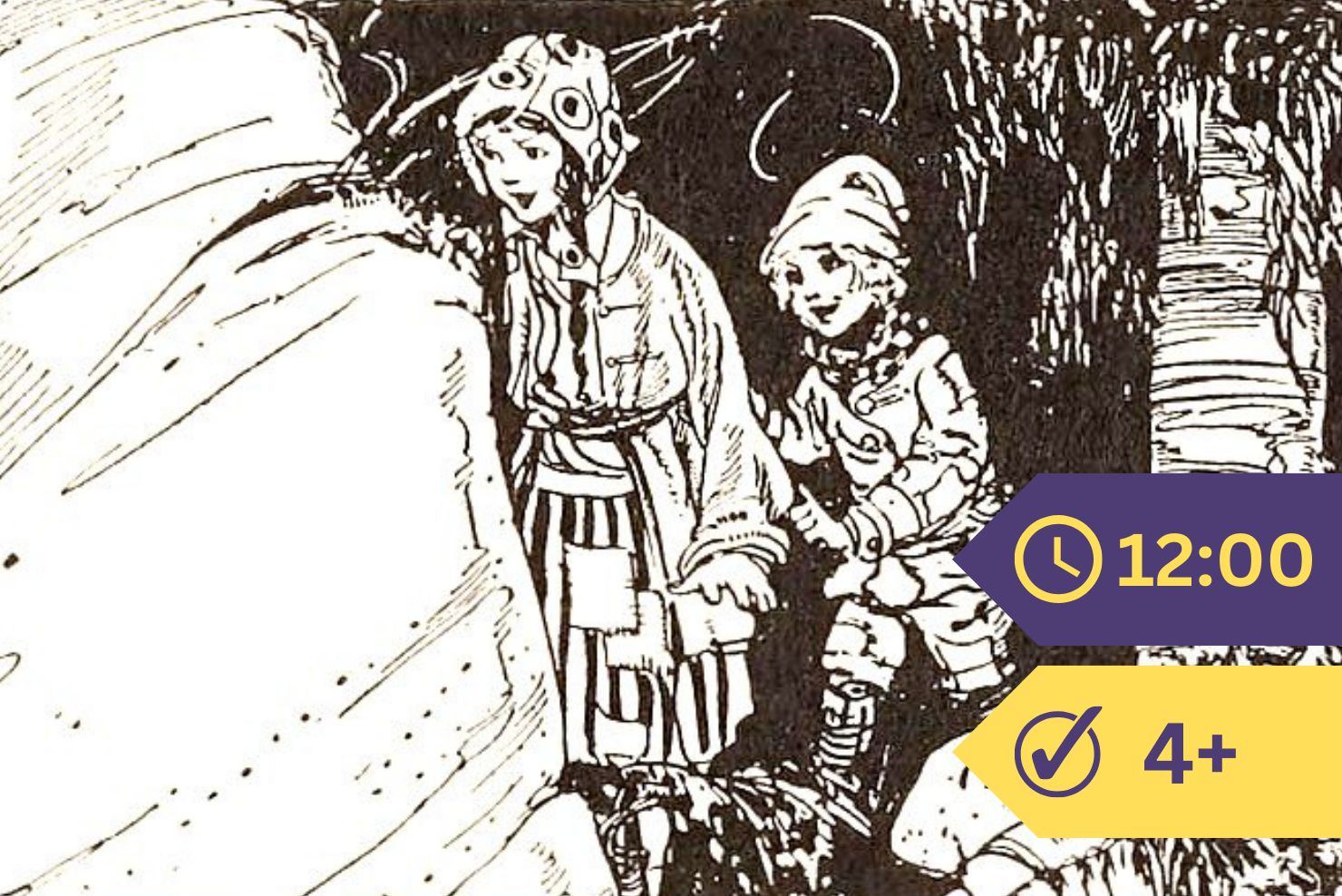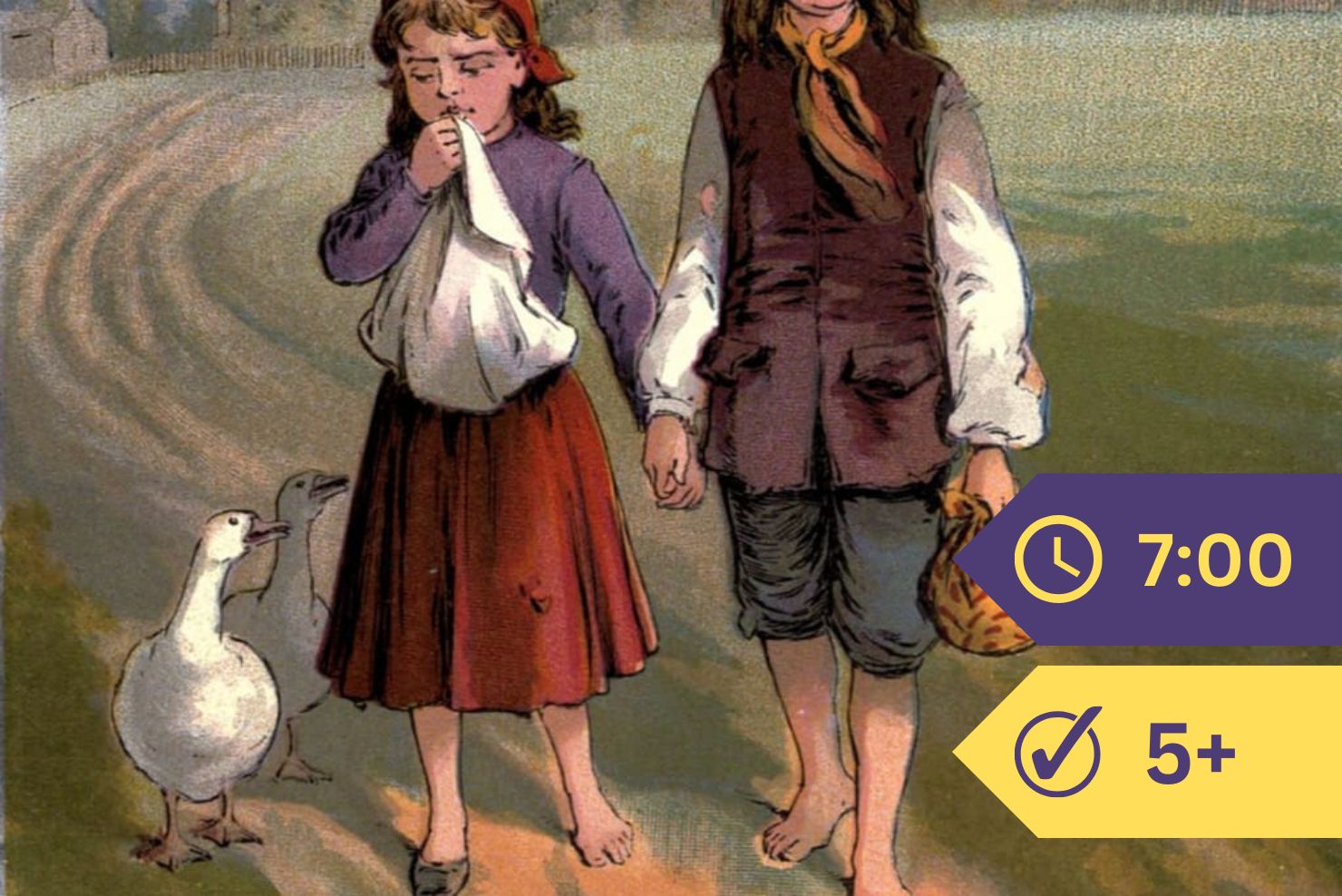Once upon a time, a lad found a lucky-stone lying in a road. And did he know what it was? He did, and a proud lad he was at his find. And how did he know? Because it had a band of white running around it, just as every lucky-stone had had since the world began.
“My fortune is as good as made,” said he, and putting the stone in his pocket, he went off whistling.
It was a summer morn, and the lad was bound for a farmer’s meadow to make hay. But no sooner had he got the lucky-stone in his pocket than he began to think that of all the days in the year, there was no day so good as this one for a holiday.
“A man who carries luck with him has no need to toil,” said he, and he sat down under a tree by the road and fell to wondering what like of good fortune the lucky-stone might bring him.
Doubtless he would soon be as rich as the richest man in the village, who was the miller. He had more money than he could count, ’twas said, and to be as rich as he would suit the lad well.
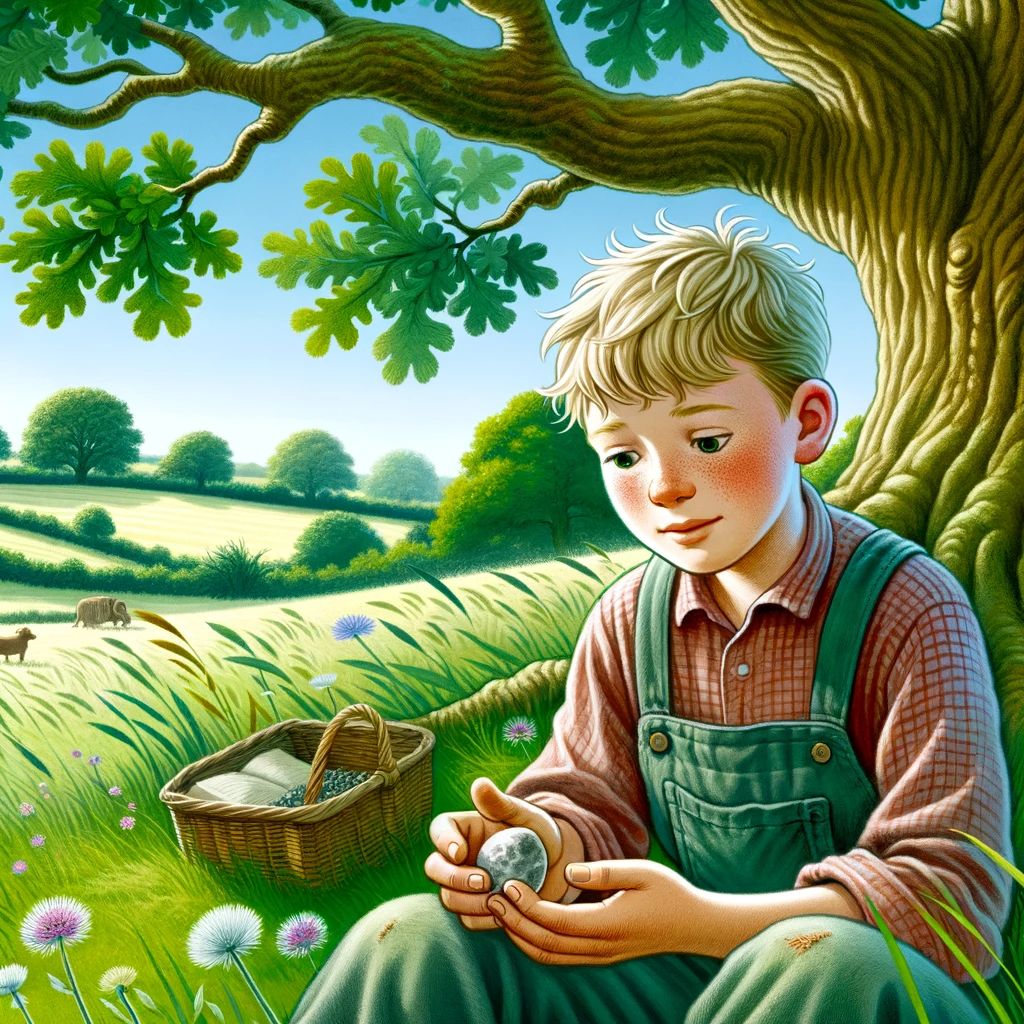
“Perchance I shall buy the mill,” said he to himself; “’tis a fine thing to be a miller, with nothing to do but watch the grain run through the hopper.”
The sun was high in the sky by this time, and the day was hot, and what should the lad do but stretch himself upon the grass beneath the tree and fall to sleep and to dreaming, too.
Never were such dreams as his! Scarcely were his eyes closed than he found himself mounted upon a milk-white horse and riding away to see the queen. But lo and behold ye! he had not come to the palace door when his grand horse changed to a chariot with four black horses, every one of them prancing and dancing till it was as much as a body could do to hold them in. And there sat the lad in the chariot, with a wallet of gold pieces beside him.
He was fairly sorry when his dreams were over and he awoke to find himself on the grass beneath the tree.
“But I’ve still the lucky-stone,” he said, and he went home well content.
From that time on, the lad thought of little else than the fortune that was sure to come. Sometimes he waited for it at home, sometimes he went to meet it on the road, and sometimes he dreamed of it under the tree by the road. And if he went to the farmer’s, which was none too often, he talked more of what he would do when he was rich than he raked hay.
At last, the farmer would have nothing to do with him for a stupid, long-tongued lazy-bones; and neither would other folk. The lad could get nothing to do if he wanted it.
It was not long before he was ragged and hungry. Nor was that the worst of it, for one day when he was walking along, looking for his fortune, he put his hand in his pocket to feel the lucky-stone. And do you believe me? All that he found there was a hole!
The lucky-stone had fallen from the lad’s pocket into the very road where it had been when the lad first laid eyes on it; and there it lay till summer came again.
Then what should happen but that another lad passing that way should spy the lucky-stone. And a proud lad he was to find it, you may be sure.
“My fortune is as good as made,” said he; and putting the stone in his pocket, he went off whistling.
The lad was bound to a farmer’s meadow to make hay. And never was a better day than this to work, thought he.
“With a lucky-stone in my pocket, I’ll rake more hay than the farmer himself,” said he; and as he said, he did.
He worked so fast and he worked so well that the farmer had an extra sixpence and a good word for him at the day’s end.
“That’s luck,” said the lad, and he promised himself that he would do as much and more on the morrow as he had done that day; and he kept his promise, too.
The farmer was never done praising him, and other folk took it up, till among them all the lad always had work in plenty and money to save.
First, it was a sixpence put away, and then a shilling, and at last it was said that the lad had more money than the richest man in the village, who was the miller.
“Now I will buy the mill,” said the lucky lad; “’tis a fine thing to be a miller with work to do from cock’s crow till day’s end.” And buy the mill he did.
He had not been miller long when the first lad came seeking work, and got it, too, for the young miller had a kind heart as well as riches.
One day as master and man stood together watching the grain run through the hopper, the first lad spoke out:
“Master,” said he, “how came you to your fortune, if you care to tell?’
“Why, look,” said the miller, “’tis all because of this”; and putting his hand in his pocket, he drew out the lucky-stone that the first lad had found and lost.

